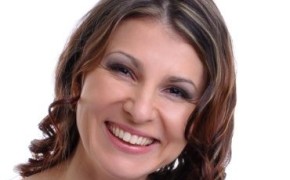Peer-to-peer digital lending platform makes it easier to borrow goods and share knowledge and skills within a community.
Finnish IT company CoReorient develops practical solutions for a sustainable society using technology and crowdsourcing. Together with Askel - Co-developing services for sustainable living project and citizens, CoReorient created a digital lending service for Anttilanmäki-Kittelä resident community. Residents can offer or search items through the lending platform, for example a sewing machine, gardening tools or even know-how and expertise. Loaning period and possible compensation are agreed upon between the users and providers.
Citizens must implement successful circular practices and behavioral change as 72% of global greenhouse gas emissions can be related to consumption habits.
In order to move to a low-carbon lifestyle, new ways of consuming and implementing low-carbon services are needed. With the help of the service, citizens are encouraged to change behavior by adapting to circular services that are easy to use and are suitable for everyday life. Through active citizen participation in the circular economy, Askel project co-develops low-carbon services with residents and companies.
Involving companies in the early planning process to meet the residents needs for new sustainable services is important. Thus, the early service development was carried out by an interactive service design process. Furthermore, co-development between residents and companies ensures that citizens voice is heard, considered and that the function of the service is feasible.
Resources needed
The Askel project was co-founded by ERDF, led by LAB. The service was developed as part of CoReorients product development and required around 5 part-time workers and 2 active community representatives. The service was provided free for Anttilanmäki-Kittelä residents.
Evidence of success
A hand full of families are eager users. Some neighbours within the Anttilanmäki area have been exchanging tools for years. The digital loaning platform gives a modern twist to the practice and makes it more accessible.
Borrowing goods and devices reduces the need of purchasing new things. While a restricted group of users ensures a high level of trust for borrowing things and sharing skills and know-how gives a sense of community building.
Difficulties encountered
Switching from physical info board to online service and operating it was found difficult. Implementing the service with a low threshold and keeping the interest of residents was challenging. It is crucial to consider these obstacles while planning new services and implementing sustainable habits.
Potential for learning or transfer
Residents of the Anttilanmäki-Kittelä community had previously implemented a physical info board and a website for communication. With the help of Askel and CoReorient, the practice was elevated into a digital lending platform for sharing and borrowing. Thus, reducing the need to buy new goods and making the service more efficient. One of the best things about the service is that you can get help near you, eg., when having a big party and more coffee cups and glasses needed, borrow appliances like a high-pressure cleaner which is needed 1 or 2 a year.
Public funding could be used for replicating such a service for a wider public, eg., participatory budgetting.
The service was tested with the resident community during the Askel project. Residents have different needs, which are affected by, for example, the form of housing, the age of the residents, and the size of the families. Sustainable housing services support the attractiveness of the area to current and future residents.
Tags: Circular economy, Citizens, Good practice, Sharing ideas








